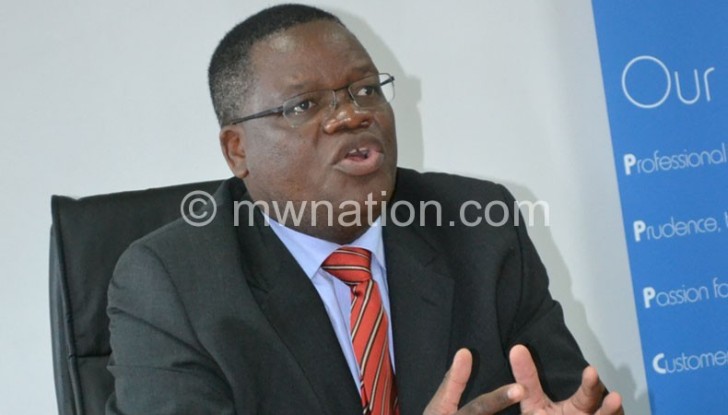PPPC says Internet price to fall 75%
Public Private Partnership Commission (PPPC) has said Malawians should expect the price of wholesale Internet in the country to go down by 75 percent following Malawi’s connection to international optic fibre network this month.
The connection to the fibre network is part of the Regional Communications Infrastructure Project (RCIP), which has been facilitated by government and provider Simbanet.

Announcing the news last week in Blantyre, PPPC chief executive officer Jimmy Lipunga said a virtual landing point (VLP) has been connected at Capital Hill.
Lipunga said government will benefit from the transaction as a beneficiary, adding that apart from saving public resources, the new connection also enables an improvement of the operating environment in government offices at Capital Hill and along the cable route by making available the much-needed Internet services in sufficient capacity.
Malawi, just like many other African countries, has historically had an underdeveloped communications infrastructure characterised by high charges, low penetration rates and other challenges in service promotion which in turn contribute to high cost of doing business, limited innovation and poor information flow.
Recently, Malawi was ranked 163 out of 167 economies, a drop from 2010’s 53 on information and communication technology (ICT) in the recently released United Nations International Telecommunications Union (ITU) flagship annual Measuring the Information Society Report 2015.
The new development means Internet will soon be cheaper and affordable to users and the price of data may dramatically go down to as low as $200 (about (K124 000) per mega byte per second (Mbps) per month.
“Current ruling prices at the market are at least $600 [about K372 000] per Mbps per month for commodity Internet in the open market.
“Under the [new RCIP], the contracted price is likely to be pitched at a level that will realise savings of at least 75 percent against the existing pricing levels,” Lipunga said.
He said the initiative will benefit ICT service providers, ICT customers and the general public.
Simbanet, an Internet service provider (ISP) in Tanzania with business links to Kenya and the UK has so far injected $12 million (about K7 billion) in the completion of the western route (Lilongwe to Chipata through Mchinji) and the northern route (Lilongwe to Songwe via the Lakeshore) with cables connected with Zambia and Tanzania to the Indian Ocean.
RCIP is a $20 million (about K12 billion) World Bank-funded project, which started in 2008 aimed at removing cost bottlenecks to international connectivity and other bottlenecks at the national and local levels. n






We usually quote transmission speeds in megabits per second. Given that a byte is made of 8 bits then you should have said “A customer will be able to pay $200 per month to lease a line that is capable of transmitting at 8 Mbps.” I am not sure this is accurate as it seems below fibre optic transmission rates.
Prices should fall below this!